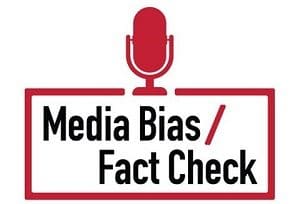Portugal Political Orientaton


Government
Government Type: Semi-Presidential Representative Democratic Republic.
Head of State: President: Marcelo Rebelo de Sousa (mainly ceremonial)
Head of Government: Prime Minister Luis Montenegro (as of 4/2/2024)
Political Party: Democratic Alliance
Political Position: Right-Center
Press Freedom
MBFC’s Country Freedom Rating: 90.30 – Excellent Freedom
World Press Freedom Rank: Portugal 9/180
According to the 2023 annual report published by Reporters without Borders, despite the poor pay and “job insecurity” in Portugal, “the reporting environment is relatively calm.” The report also underlines that “Insult and defamation are still criminalized despite repeated European Court of Human Rights rulings that Portugal is violating free speech.” According to Freedom House’s Freedom in the world 2023 country profile, “defamation is still a criminal offense in Portugal.” In 2018, “the parliament adopted changes to the criminal code that granted journalists a protected status, increasing the penalties for those who threaten, defame, or constrain them.”
Media Ownership and Government Analysis
Portuguese Media consists of a mix of corporately owned media outlets and state-owned TV and radio stations. The Government subsidizes public media indirectly; for example, state-owned RTP (the public broadcaster) that operates major TV and radio broadcasting channels has a mixed funding model based on advertising and a broadcasting contribution tax collected through electricity bills. The state also regulates media, including the press, through the Portuguese Media Regulatory Authority – ERC, an “independent administrative body, that exercises regulatory and supervisory powers in the media sector.” Four of the five members of the regulatory board are elected by the Parliament; for more regarding the board’s composition, see here.
Privately owned media mainly finance themselves through advertising. Grupo Media Capital or Media Capital (TVI channels and several radio stations) is a leading media group in Portugal. Media Capital is currently owned by the Prisa Group (Spanish media conglomerate), and Impresa Sociedade Gestora de Participacoes Sociais SA (Impresa SGPS SA) is another Portuguese media group (SIC TV channels and the Expresso newspaper).
In 2018, The IMPRESA Group sold its magazines such as Activa, Caras, Caras Decoração, Courrier Internacional, Exame, Exame Informática, Jornal de Letras, TeleNovelas, TV Mais, Visão, Visão História, and Visão Junior to another media group called Trust in News (TIN) which is owned by former journalist Luís Delgado. Another media group is Cofina, who owns the tabloid Correio da Manha and business newspaper Jornal de Negocios. The founder and shareholder of the company is the current chairman of the board of directors, Paulo Jorge dos Santos Fernandes.
In conclusion, while the Government has indirect control over public broadcasting, Freedom House reports, “Public broadcasting channels are poorly funded and face strong competition from commercial television outlets.” However, The Transparency and Integrity Association asked: “the Government for more transparency on the institutional advertising purchasing program to support the media and recommended that the criteria dictating the distribution of funds be made public.” Finally, corporate media providers dominate the print and broadcast media; therefore, there is corporate influence over the media outlets. Since most of them are privately owned and financed through advertising and subscription/license fees, the government has minimal control over them.
| Top 5 Portugal Media Sources by Web Rank |
| Sapo |
| Noticiasaominuto |
| Correio da Manha |
| Record |
| Publico |
Last Updated on March 28, 2024 by Media Bias Fact Check
Do you appreciate our work? Please consider one of the following ways to sustain us.
or
Left vs. Right Bias: How we rate the bias of media sources
